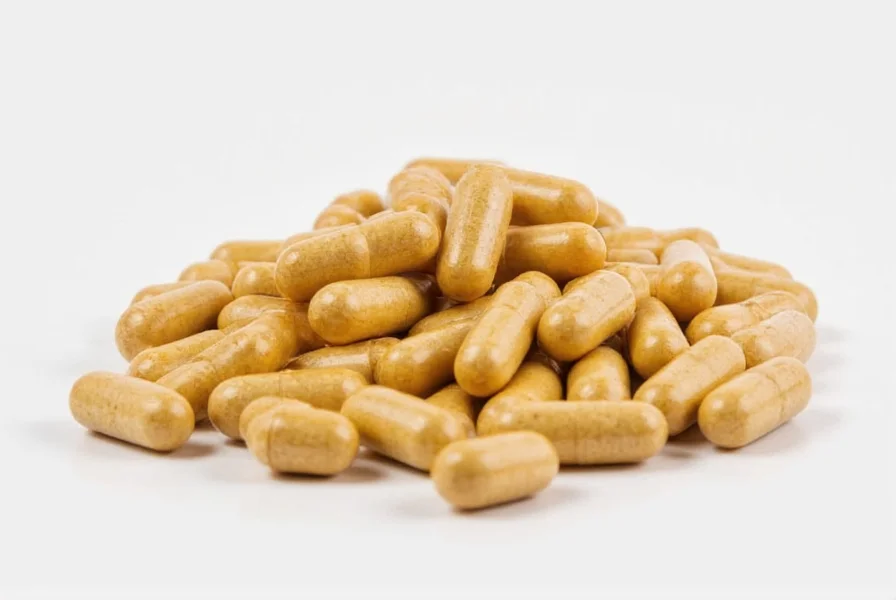Fenugreek capsules have gained significant attention in the supplement market for their potential health benefits. These concentrated forms of Trigonella foenum-graecum seeds deliver bioactive compounds like diosgenin, 4-hydroxyisoleucine, and galactomannan fiber in convenient, standardized doses. Unlike raw seeds which require preparation, capsules provide consistent potency and eliminate the bitter taste associated with whole fenugreek.
What Is Fenugreek and How Do Capsules Work?
Fenugreek, an ancient medicinal plant cultivated for over 6,000 years, contains compounds that influence multiple physiological pathways. The primary active components in fenugreek seed extract benefits include:
| Compound | Mechanism of Action | Concentration in Capsules |
|---|---|---|
| 4-Hydroxyisoleucine | Stimulates insulin secretion | 50-60% of total alkaloids |
| Diosgenin | Phytoestrogen with hormonal effects | Varies by extraction method |
| Galactomannan fiber | Slows carbohydrate absorption | 20-30% of seed composition |
These compounds work synergistically to produce the effects that make fenugreek capsules for blood sugar control particularly noteworthy. The fiber content creates a gel-like substance in the digestive tract that slows glucose absorption, while 4-hydroxyisoleucine directly stimulates pancreatic beta cells to increase insulin production.

Evidence-Based Health Benefits
Research on fenugreek capsules reveals several promising applications supported by clinical evidence:
Blood Sugar Management
A 2022 meta-analysis of 12 clinical trials involving 725 participants with type 2 diabetes found that fenugreek supplementation significantly reduced fasting blood glucose levels by an average of 19.7 mg/dL (14-25% reduction) compared to placebo. The most effective fenugreek supplement dosage recommendations ranged from 5-10 grams daily, typically divided into multiple doses taken with meals.
Lactation Support
Multiple studies indicate that fenugreek capsules for lactation can increase milk production in breastfeeding mothers. A randomized controlled trial published in the Journal of Alternative and Complementary Medicine found that mothers taking 6 grams daily of fenugreek extract produced 49% more milk at day 14 compared to the control group. Most lactation specialists recommend starting with 500-1000mg three times daily, monitoring for effects within 24-72 hours.
Testosterone and Exercise Performance
Research suggests fenugreek may support healthy testosterone levels in men. A 12-week study in the Journal of the International Society of Sports Nutrition showed that men taking 500mg daily of a specific fenugreek extract experienced significant increases in free testosterone and improved strength measures compared to placebo. However, effects appear most pronounced in men with initially lower testosterone levels.
Safety Profile and Potential Side Effects
While generally well-tolerated, fenugreek capsules side effects and safety considerations include:
- Digestive effects: Mild gastrointestinal discomfort occurs in approximately 15% of users, typically resolving within a few days
- Allergic reactions: Rare but possible, especially in individuals allergic to peanuts or chickpeas (all part of the Fabaceae family)
- Maple syrup odor: A harmless but distinctive body odor resembling maple syrup may develop due to sotolone compound
- Blood thinning: Fenugreek may enhance effects of anticoagulant medications like warfarin
Most clinical trials report good tolerability with doses up to 10 grams daily for periods up to 3 months. However, long-term safety data beyond 6 months remains limited. The European Food Safety Authority considers fenugreek safe at doses up to 5 grams daily.

Who Should Avoid Fenugreek Capsules?
Certain populations should exercise caution or avoid fenugreek capsules altogether:
- Pregnant women: Fenugreek may stimulate uterine contractions, particularly in the third trimester
- Individuals with peanut allergies: Cross-reactivity occurs in approximately 25% of peanut-allergic individuals
- People taking diabetes medications: Risk of hypoglycemia when combined with insulin or sulfonylureas
- Those scheduled for surgery: Should discontinue at least 2 weeks prior due to potential blood sugar effects
Choosing Quality Fenugreek Supplements
Not all fenugreek capsules deliver equal benefits. When selecting a product, consider these factors:
- Standardization: Look for products standardized to specific active compounds (e.g., "standardized to 50% 4-hydroxyisoleucine")
- Third-party testing: Certifications from NSF, USP, or ConsumerLab indicate verified potency and purity
- Extraction method: Water-based extracts preserve different compounds than alcohol-based extracts
- Dosage transparency: Reputable brands clearly state the amount of active ingredients per serving
Research suggests that products containing the specific TruFenugreek™ extract demonstrate more consistent results in clinical trials compared to generic fenugreek powder. However, higher-quality extracts typically come at a premium price point.
Integrating Fenugreek Capsules Into Your Wellness Routine
For optimal results with fenugreek capsules for blood sugar management, take 500-1000mg with each main meal. Those using fenugreek for lactation support typically start with 500mg three times daily, increasing to 1000mg three times daily if no improvement occurs within 72 hours. Men seeking testosterone support generally benefit from 500mg daily taken with breakfast.
Consistency matters—most benefits become noticeable after 2-4 weeks of regular use. Pair fenugreek supplementation with a balanced diet and appropriate lifestyle factors for best results. Remember that supplements work best as part of a comprehensive health approach rather than standalone solutions.
Conclusion: Weighing Benefits Against Limitations
Fenugreek capsules offer a convenient way to access the potential health benefits of this ancient medicinal plant. While research supports their use for blood sugar management, lactation support, and possibly testosterone enhancement, they're not a magic solution. Individual responses vary significantly based on genetics, health status, and lifestyle factors.
As with any supplement, consult with a healthcare provider before starting fenugreek capsules, especially if you have underlying health conditions or take medications. When used appropriately as part of a holistic health strategy, fenugreek capsules can be a valuable addition to your wellness regimen.
Frequently Asked Questions
How long does it take for fenugreek capsules to increase milk supply?
Most breastfeeding mothers notice increased milk production within 24-72 hours of starting fenugreek capsules at the standard dose of 500-1000mg three times daily. Clinical studies show maximum effects typically occur within 1-2 weeks of consistent use. However, approximately 20% of women are non-responders to fenugreek for lactation support.
Can fenugreek capsules lower blood sugar too much?
Yes, fenugreek capsules can potentially cause hypoglycemia, especially when combined with diabetes medications. Research shows fenugreek may reduce fasting blood glucose by 14-25% in people with type 2 diabetes. Those taking insulin or sulfonylureas should monitor blood sugar closely and consult their healthcare provider before using fenugreek supplements to avoid dangerously low blood sugar levels.
What's the difference between fenugreek powder and capsules?
Fenugreek capsules contain standardized extracts with consistent potency, while powder varies in active compound concentration. Capsules eliminate the bitter taste of raw fenugreek and provide precise dosing. Research suggests capsule forms deliver more reliable therapeutic effects because they contain concentrated active compounds rather than whole seed material. The typical effective dose in capsule form (500-1000mg) equals approximately 3-5 grams of powder.
Are there any drug interactions with fenugreek capsules?
Yes, fenugreek capsules may interact with several medications. They can enhance the effects of diabetes medications (increasing hypoglycemia risk), blood thinners like warfarin (increasing bleeding risk), and medications metabolized by CYP3A4 liver enzymes. Fenugreek may also lower blood pressure, potentially enhancing effects of antihypertensive medications. Always consult your healthcare provider about potential interactions before combining fenugreek with prescription medications.











 浙公网安备
33010002000092号
浙公网安备
33010002000092号 浙B2-20120091-4
浙B2-20120091-4